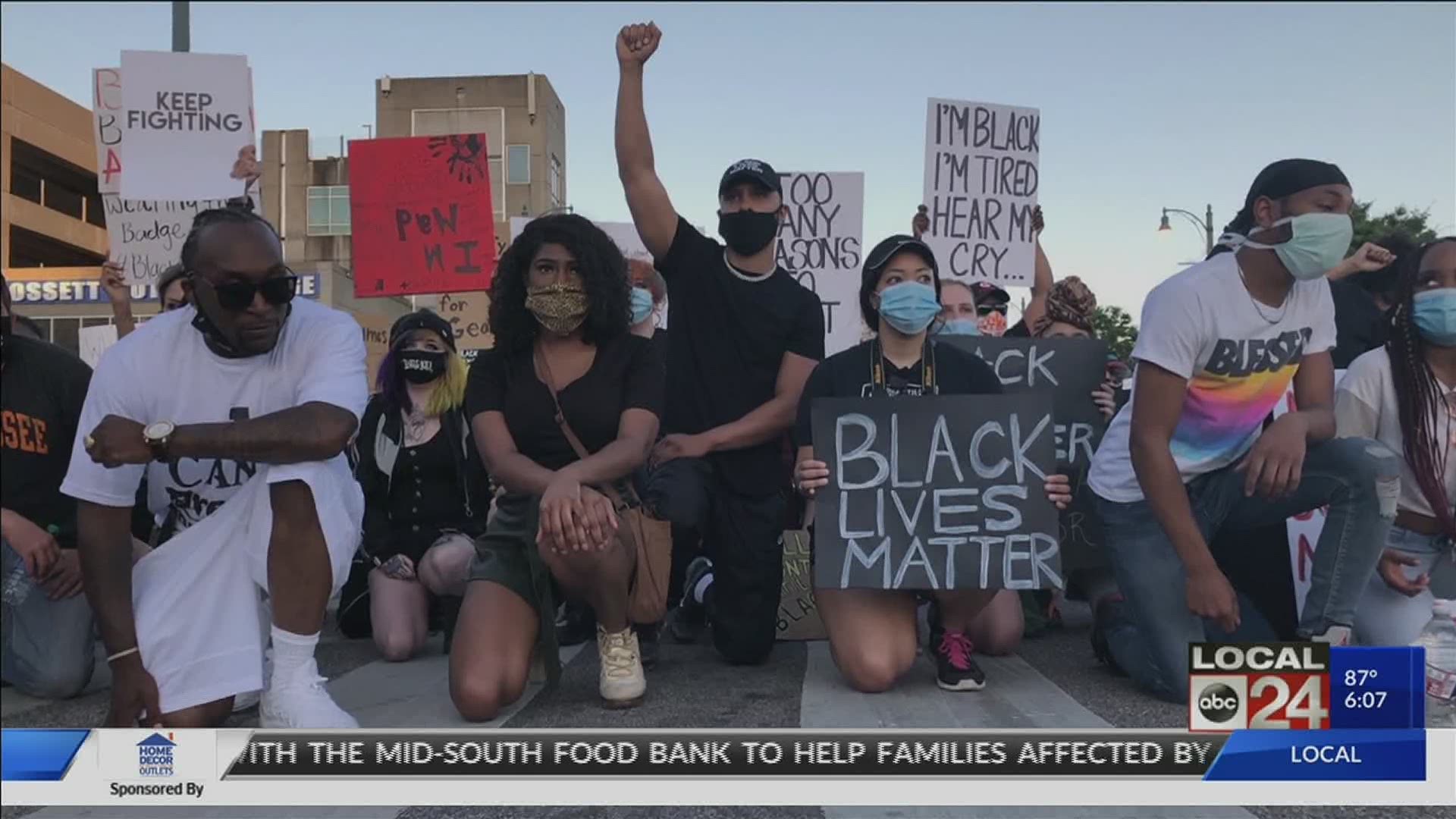MEMPHIS, Tennessee —
One week ago today Memphis activists held their first George Floyd protest and every night since, hundreds of protesters have taken to the streets in our city.
What does it mean? And what should happen next? Local 24 Memphis spoke with the Rhodes College chair of Africana Studies, Charles McKinney.
Professor McKinney has spent the majority of his career researching the civil rights movement. Here's what he has to say a week into these protests.
"One of the things we really have to do in this moment is push through the conversations and questions as to why people are in the streets," said McKinney.
Professor Charles McKinney isn't surprised a week after the protests began, they are continuing.
"The echo chamber of social media and the images being deployed and replicated and the feeding and churning that is going on that can potentially extend the life of this movement in some way," said McKinney.
Looking at the protesters, you can see it skews to a younger demographic and is diverse not a surprise says McKinney.
"Social media looms large here. It's much easier now to be connected to groups and protest information is very accessible." He added, "This dynamic, my friends are going to the protest, cool I'm going to go too."
McKinney says a variety of people are coming to this moment for a variety of reasons. McKinney says what's not surprising is what he considers a lackluster response from local elected officials. He says the working class is not well organized in Memphis to demand their voices be heard.
"Let’s just be clear. The leadership in Memphis has, at best, an ambivalent relationship with black people in Memphis. Let's be clear about that," said McKinney.
"There is not enough political pressure. We haven't figured it out yet and this is one of the challenges of organizers."
McKinney says those who are actively protesting, and those who are not, but support change can all help make a difference.
“We should be asking the question ‘What should we be doing to transform the neighborhoods and the communities?’"

